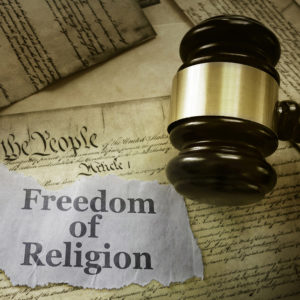A growing number of people think that America is changing for the worse because it is straying from its Christian roots. As Donald Trump’s former national security adviser Michael Flynn has put it, “If we are going to have one nation under God, which we must, we have to have one religion. One nation under God, and one religion under God.”
The call to “return” to a better time when Christianity defined the country is misleading, and what is even more to the point: It is dishonest. America was never a Christian country, and creating one would be bad for both America and Christianity.
It is true that many of the early colonies were Christian communities. Religious establishments in the colonies often followed one version or another of Christian doctrine, some making heresy a violation of the criminal law and some establishing the death penalty for violation of the sabbath. This integration of Christianity and politics reflected the European tradition of Christian politics, a tradition that was steeped in religious conflict that often defined politics itself. It was this problem of political conflict grounded in religious disagreement that led the American Founders to introduce a radically new concept: a completely secular government.
This new approach to government is reflected in James Madison’s “Memorial and Remonstrance Against Religious Assessments,” which was written in 1785 as a response to Patrick Henry’s proposal to levy a tax supporting Christian teachers in the state of Virginia.
Madison argued that it was improper for the state to support Christianity, even in order to promote good morality. The “Memorial and Remonstrance” argues that religion is outside the jurisdiction of civil society and that even the smallest infringement of religious liberty could both endanger society and weaken religion.
The effect of religious establishments has sometimes been “to effect a spiritual tyranny on the ruins of civil authority, in many instances they have been seen upholding the thrones of political tyranny; in no instance have they been seen the guardians of the people.”
Madison, who to this day is known as the “Father of the Constitution,” wrote in the Federalist Papers that faction — and especially majority faction — was the most dangerous problem for popular government. And religious faction was historically the most important example of this problem.
For centuries religious conflict had destroyed the rights of minorities and undermined governments’ political stability and tranquility. Madison’s answer is presented in Federalist 51, where he argues that a large, commercial republic would produce a large number of different economic interests and different religious groups that would compete with one another and keep any one from becoming dominant.
In addition, it is clear that our Founding documents are not Christian documents, even though a number of Founders were devout Christians. The original, unamended Constitution has only one reference to religion. Article VI says that religious tests cannot be given for public office. It does not mention Jesus or remind us to celebrate the sabbath, attend church or encourage us to pray. It does not even mention Christianity.
And while the Declaration of Independence famously refers to “nature’s God” and says that our unalienable rights are endowed by our creator, one cannot help but notice that the creator of the Declaration only endows us with rights derived from our passion for self-preservation; it does not endow us with any religious truths or creeds.
The doctrine of natural rights is a modern doctrine, articulated by Thomas Hobbes and John Locke, which posits a “state of nature” where life is “solitary, poor, nasty, brutish and short,” as the original human condition, rather than the Garden of Eden.
It is true that the phrase “separation of church and state” does not appear anywhere in the Constitution. The Founders would have been friendly to some general, non-discriminatory support of religion, as long as it did not favor one religion over another. But they never would have condoned the establishment of any particular religion or condoned preferential treatment for Christianity by the state.
The American regime was not founded on Christian principles, and claiming that it was is only creating an imaginary past, encouraging Christians to long for a mythical time when things were more familiar and simpler.
People like Michael Flynn are dangerous because they are encouraging Christians to think of diversity as the enemy and to see non-Christians as a threat. This is, of course, not part of traditional Christianity; it represents the political manipulation of Christianity. The best way to honor the American Founders is to oppose the movement to politicize religion.

